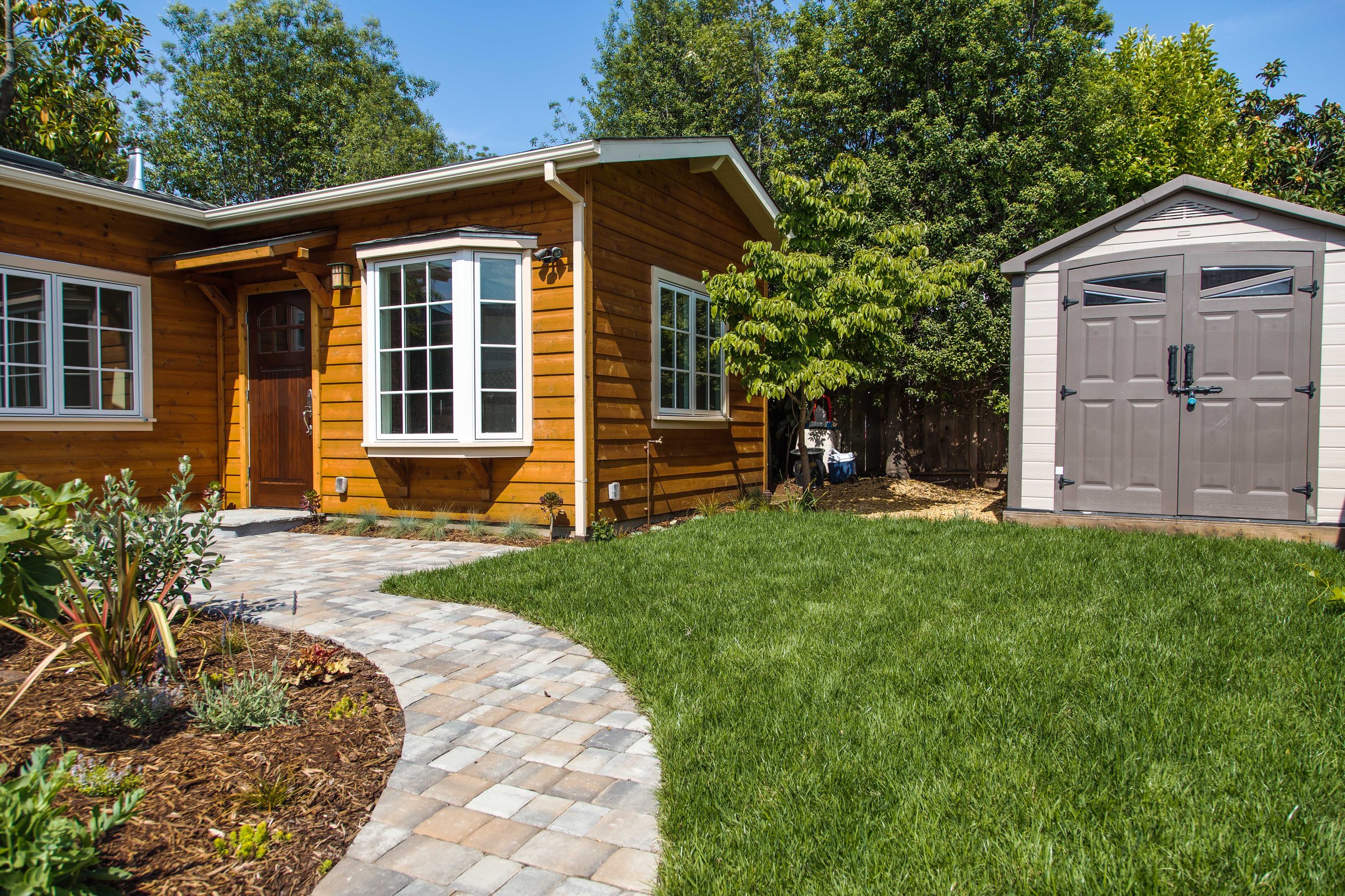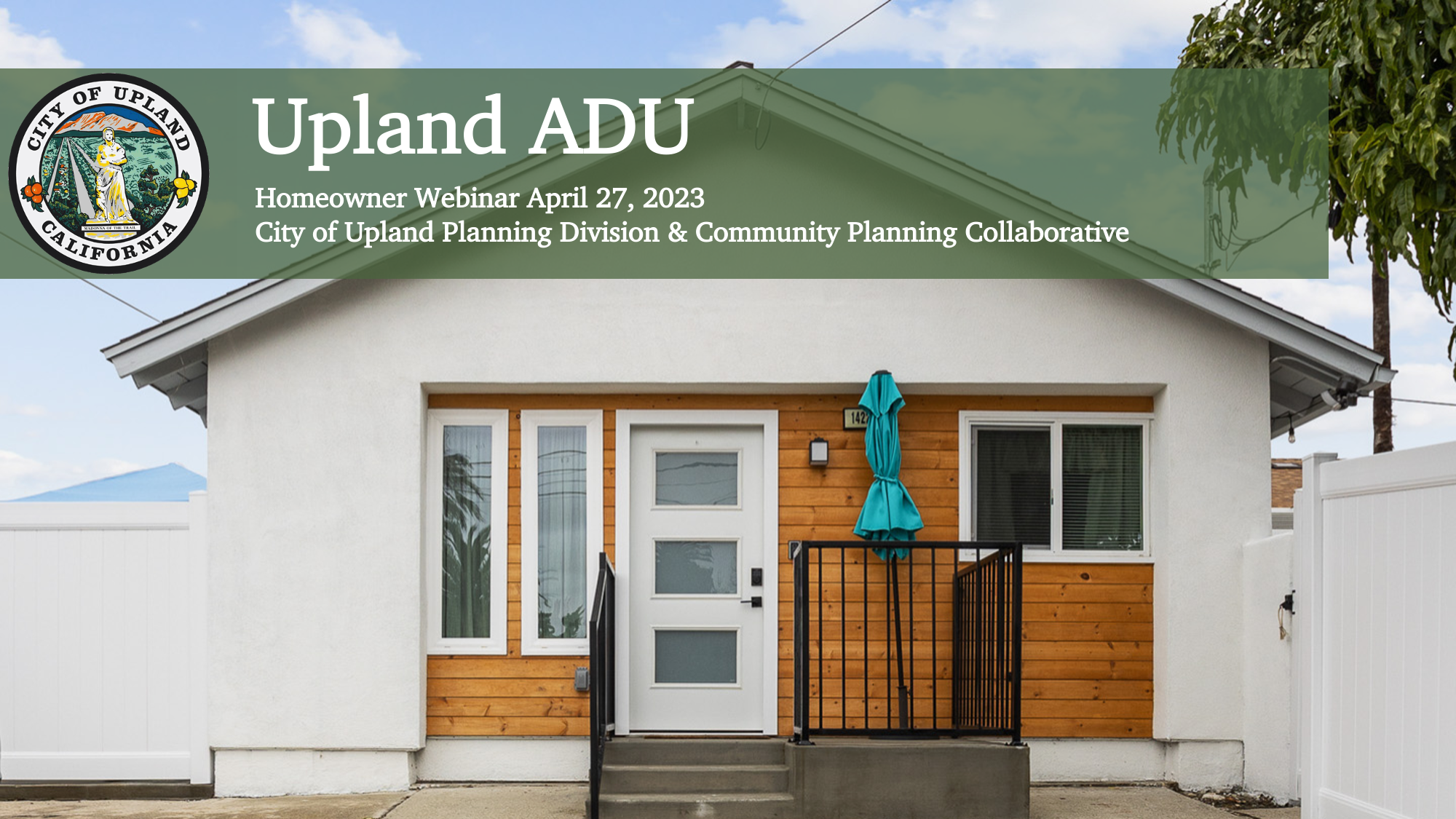Get started
Clarify your goals | Get inspired | Estimate costs
Project TIMELINE
Most ADU projects take 12-18 months to complete, but some extend to 24 months or more. Getting started is part of the planning process, the first 1-3 months (or so).

Getting started FAQs
Here are a few of the most frequently asked questions about getting started. See the content below and our ADU Guidebook for more guidance, resources, and tips for all steps of the process.
-
The best place to start is by thinking about what you want from an ADU and looking at other ADUs to get a sense of what’s possible. Once you have some ideas in mind, you can move on to Learning the Rules to figure out what you can build on your property.
You can also use our Process-at-a-Glance resource for an overview of the process and some initial issues to consider as you get started.
-
Building an ADU is an investment of time as well as money. Most projects take one to two years to complete. Typically, it takes homeowners one to three months to get started and assemble their team, then one to six months to develop plans, meet with the city, and submit the application. Depending on what permits are required, how many rounds of review are required, and how quickly a homeowner and their project team can respond to comments, it will take one to six months to get permits. Construction usually takes six to twelve months.
-
You’re not required to tell your neighbors about your ADU, but it’s always a good idea to communicate with them early in the process. Your project will run more smoothly if they are kept informed, and they may have great ideas for your project.
If you live in a Neighborhood or Homeowners Association, talk with them early in the process. They can’t prevent you from building or renting an ADU, but they may have guidelines or standards you’ll need to know for design and construction. You will also need certification from the Association that any standards have been met. This can be in the form of a letter, and should be submitted with your ADU or building permit.
-
If your property is located in a Historic District, you will need to apply for a Certificate of Appropriateness, which assesses whether your plans are compatible with your existing structure and your neighborhood.
Confirm whether your property is located in a Historic District. Locate your property on the City of Upland’s online Community View tool, then select the “Historic Districts” option from the overlay menu to the left of the map to see if your property is one of the colored map areas. You can also search for your property on the City of Upland’s Historic Homes Registry.
Certificate applications are submitted in-person at the Permit Counter and include an application form, plus specific details about your plans — submission items are listed on the application. ADUs are considered a Major Alteration of a Single-Family Residence, with an application fee of $200 due at submission.
In some cases if the proposed ADU is within 600 feet of a property listed in the Historic Homes Registry, it must not be visible from any public space (sidewalk, street, etc.).
Did you miss our Upland ADU Kickoff Webinar?
Watch it here:
Getting Started Overview
Getting started with an ADU project is what many think of as “the fun part” – where you think about what you want in an ADU and what might fit on your property, and look for design and layout inspiration.
BEFORE you begin …
Make sure you understand the types of ADUs and the other content covered in our ADU 101, and look at our Process-at-a-Glance for a brief overview of the entire ADU process. You may also want to check out our Glossary to make sure you understand the key terminology.
Think about what you want
Start by thinking about your short- and long-term goals and concerns for your ADU project, and what kind of ADU is best for your needs. Our ADU Exercises have a checklist to get you started. Talk to friends and neighbors who have built an ADU and reach out to any builders or designers you know for a casual chat. Check out our ADU Stories and sample floorplans for inspiration.
Keep in mind your plans might change once you hire a professional. On a more personal note, it’s a good idea to notify your neighbors about your project (not required but recommended), and to think about what it means to share space with tenants (and if that impacts your design and layout).
If you live in a Neighborhood or Homeowners Association, talk with them early in the process in case there are guidelines or standards that your ADU design will need to meet.
Make an informal sketch
Make a rough sketch of your property, including the existing home, any other structures, and space for a possible ADU. Use our ADU Exercises to help you with this step.
Note: You can update this sketch or make new versions as you continue to learn about your property and what’s possible.
Estimate
project cost
It’s never too early to start thinking about and planning for your project budget. A very rough placeholder for you to use is $175 per square foot, including construction and other costs (design, fees, etc.). The real number can vary widely and depends on many factors. Our ADU Calculator is a great place to start when developing a budget. It provides a rough estimate of costs and income and will help you understand how choices can impact your budget over time, all customized to real local numbers.
See Budget & Finance for more information. Our Guidebook also contains details regarding the cost of ADU design, permitting, and construction.
KEY Resources for getting started
ADU Guidebook
Your comprehensive guide to building an ADU in the City of Upland, from initial inspiration through move-in.
ADU GUIDEBOOk →ADU Process At-A-Glance
An overview of the ADU process, step-by-step – plus key information you need to know before starting your project.
PROCESS AT-A-GLANCE → Get inspired
Learn from others and what they’re building.
Spotlight: Brenda & Kyle
Creating safety and independence for family

Get started on the right foot with our ADU Guidebook
Our in-depth guide to building an ADU in the City of Upland, from inspiration to move-in.














